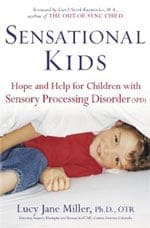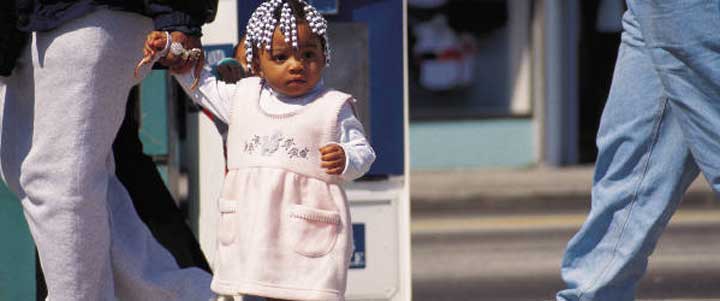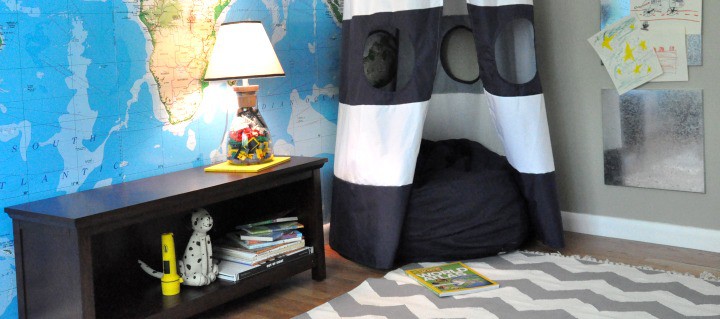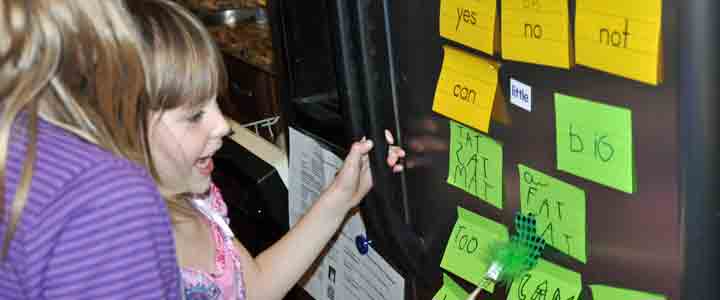My Daughter’s Non-Disorder Sensory Processing Disorder
This post may contain affiliate links.
Apparently, AJ has tactile Sensory Processing Disorder (SPD). This news is good and bad. The more I learn about SPD, I feel like finally we’re getting to what’s going on with AJ. But I’m mad, too — because she’s nine! How did the pediatricians and teachers miss this diagnosis for so long? (And, just to be clear, neither her teachers or her doctor finally got me to try Children’s Hospital in Denver to get AJ assessed — it was a social worker.)
SPD = THE NON-DISORDER DISORDER
But, the pediatricians and teachers aren’t to blame really. No one knows about SPD – and, according to Dr. Lucy Jane Miller, the nation’s leading SPD expert, it’s laughable to most doctors. (Remember Western doctor’s opinion of Post Traumatic Stress Disorder a decade ago? )
No one knows about SPD because technically, SPD doesn’t exist – at least not until the American Psychiatric Association puts it into the Diagnostic and Statistical Manual (The DSM) and says it’s an actual disorder.
Okay, so how do you get in the DSM?
Miller says, “It’s political. He who has the strength, gets his way,” about the process of acceptance into the DSM, and admits she isn’t sure if the years of research she’s submitted from well-respected universities like Harvard, Yale, and MIT will count for anything. “Oprah. If we could get on Oprah, we’d get in,” she adds. “I’ve been doing this for 35 years and it makes no sense.”
WHAT IS SENSORY PROCESSING DISORDER?
Sensory Processing Disorder (formerly called Sensory Integration Dysfunction) is an umbrella term which covers a variety of neurological disabilities related to “the inability to use information received through the senses in order to function smoothly in daily life.” (The Out-of-Sync Child, Kranowitz.)
In 1972, A. Jean Ayres, Ph.D. O.T.R., published a book suggesting that sensory issues in children weren’t symptoms of other disorders but in fact, their own unique and unrecognized disorder.
Miller explains that we now know that there are different subtypes of SPD. The one that applies to AJ is sensory over responsiveness particularly with tactile but also with auditory, taste, and smell.
“Children who are over-responsive to sensation exhibit “sensory defensiveness” – an aversion to touch, sound, light, or other sensory input. Many of these children are fussy babies who grow into toddlers and grade schoolers who are anxious, have trouble making transitions, have frequent tantrums or meltdowns, and/or have difficulty in social situations.” (S.T.A.R. website)
SO, SHE ACTS LIKE THIS BECAUSE OF SPD?
Even as a baby, AJ didn’t like being held, rocked or cuddled. She flinched when hugged up until recently. The only time she fell asleep in someone’s arms, my husband’s, she was sick. I never got to rock her to sleep. Ever.
She’d have screaming tantrums with hair brushing, nail clipping, going to the doctor, and getting in her car seat. I was always envious of the moms who could run more than one errand — I had a two errand limit before total meltdown would happen. There were no exceptions. (I even cut her hair off after threatening . . . if you throw a fit one more time . . . and when one more time arrived, chop, chop.)
One of the worst experiences of my life was AJ’s three-year-old well-care checkup. It also was the beginning of the pediatrician missing things and me feeling like a total failure as a mother. The first part of the visit required AJ to get on the doctor’s scale and get weighed. AJ refused –crying and screaming. We were in a common area, not in a room so we had a nice large audience for this whole interaction. JJ had just been born, I was still wearing my velour maternity sweatpants and matching jacket.
I started out with my best parenting techniques (“Look, this will be fun! Mommy will show you. See?”) and slowly deteriorated to bribing (“I’ll buy you an ice cream”) and then to inventing consequences (“You will not get an ice cream!”)– nothing worked. It was a ONLY a scale! All she had to do was step on it for a few seconds.
AJ was so out of control that she started biting her arm. At this point, I was profusely sweating and about to cry. I had no idea what to do. Eventually, I got weighed by myself and then weighed again holding a flailing AJ. After more screaming and crying, we were sent home without even the basics of the well-care visit. I bought everyone that helped us Starbucks gift cards and resigned myself to being a failure as a mother.
But, wouldn’t this be a great time to have given AJ some sort of screening?? — and give us both the help we needed? Instead, I believed that her behavior was because I wasn’t a good parent. Now I wonder if any of it was in her or my control when her senses were that overstimulated.
I could go on and on with stories that I now can see as behaviors that indicated AJ’s sensory processing disorder. (Even chewing on her clothes and hair is a common behavior! I only learned this a few weeks ago!)
UNTREATED SPD
I’m still learning but apparently, there are some predictable consequences that happen when a child has SPD:
- poor fine motor skills
- poor social skills
- inflexible thinking
- lack of creativity
- difficulty with motor planning
Read more about how we’ve discovered a connection between AJ’s SPD and her anxiety.
TREATING SPD
Occupational Therapy — activities to help with proprioception, vestibular, tactile, auditory, visual, smelling and feeding.
I’m “brushing” AJ’s entire body with a plastic bristle brush. Also, I do joint compressions to help with low tone. (I think?) Also, we’re playing more with textured things, doing lots of movements like pushing, swinging, jumping – things we already do.
When the meltdowns occur, and they do, I give AJ a huge bear hug – sometimes wrap her up like a burrito in a blanket and hold her tight. It seems counter-intuitive but it really works!
WHAT I’M READING
The Out-of-Sync Child by Carol Stock Kranowitz, M.A.
Sensational Kids by Lucy Jane Miller
Raising a Sensory Smart Child by Lindsey Biel and Nancy Peske
Hartley’s Life With 3 Boys
SPD Blogger Network
Lemon Lime Adventures
QUESTIONS FOR YOU
Have you experienced SPD in your life? How so?
Do you have any advice that will help me in this process?
You Might Also Like
Anxiety & It’s Connection to SPD
6/2013: SPD still not in the DSM.
Ideas for Kids Who Don’t Like Reading







Thank you. We’re discovering very quickly in first grade my son has sensory processing issues. All through Kindergarten, he bit when overwhelmed. People and things. There are perfect rows of teeth marks on his blinds from being sent to his room. First grade is where it’s all hanging out though. The inability to sit at his desk and do seat work without a constant sensory input (A sea band! He presses his wrist against his desk, so the knob presses in.) from the commotion in the classroom. Putting him in a quieter area doesn’t help, either. For now, this works. It may change next month, it may change next year. We were fortunate enough to be blessed with a teacher for this year who recognized this in him, and knew how to help him.
Reading about SPD explains so much. The delay in fine and gross motor skills, the speech delays, even his difficulty learning to read (blending sounds is awful for him). He is such a bright boy, and is so easily frustrated that he can’t just do it. It’s really hard trying to walk the fine line between having him feel like he fits in, but doing what has the most benefit to him while at school. Right now he thinks he’s super awesome because he gets iPad time for doing all his seat work in the time allotted. It’s the compromise we came up with with his teacher because he was feeling so left out when everyone else had free time because they were done.
It’s small baby steps, but it’s so worth it in the end. You don’t suck as a mom. I don’t suck as a mom. We’re just doing the best we can with what we know.
you’re right, we don’t suck! I’m glad you’re seeing baby steps of growth, that’s always encouraging. And that his teacher is so aware of his needs – that’s fantastic.
Thanks, Tania!
I can completely relate to everything in your article. My son is 9 and was diagnosed with ODD – oppositional deviance disorder at the age of 4. Then ADHD at aged 6. When a client told me about SPD and it sounded just like him. I took him to an OT who specializes in SPD. He really did improve and after 18 months the OT felt he was finished with OT. He is now in his 3rd grade at school and having extra reading lessons, extra writing lessons and has a full time tutor after school. I have just heard of a hearing treatment that helps to relax the tiniest muscle in the body which is in the ear. It is a series of faint sounds the child listens to via headphones once a day for two weeks. It sounds weird I know but I’ll try anything but hectic medication I don’t believe my son needs. Apparently after two weeks the muscle in the ear is able to ‘regulate’ the sounds the child hears and which before would cause a sensory overload. I’ll be finding out more and will post again. Teachers do not believe my son has ADHD and I know from watching him grow up and throw temper tantrum after temper tantrum and like you say ‘fall outs’ over normal things. I have often felt like the worst mother and felt very depressed over the whole situation. I don’t know what the answer is but I know this…there is no quick fix, and sadly no end to this. I feel that you constantly try to find something new to help your child along. Do what you can, do your best, forgive yourself and your child often.
Thank you for this article. We need to ask why? Why? Why? When a child has a behavior. As a society, we are quick to blame parenting instead of saying, “why?” It could have been a balance anxiety, too- those scales make me nervous because they wobble :). As a teacher, I know we tend to wait to see if maturity helps a child, which is why many children with invisible challenges are not diagnosed until 8-10. My big question as a mom and teacher is- “What can we do in the meantime? How can we hold this child so they don’t have baggage, and the family feels supported?” It is a big question! I look forward to more discussion 🙂
brilliantly said!
As a past teacher and now as a mother of an 8 year old girl with SPD and extreme anxiety -separation/social, my advice is to really believe the parent is not just spoiling their child. It’s so embarrassing for both my child and me. The last thing in the world my child wants to do is stand out. However, that’s exactly what happens when the anxiety hits. My little girls goes into fight or flight in front of her class and others. I would never force a child to stay work through a panic attack in public. pick a private place (like the nurses office) for them to go and calm down. I would also get students with these problems referred to the occupational therapist at the school. Tell them how it interferes with their school work. That should qualify them for help. We’re just starting to work on our issues. We’re doing some Cranial Sacral therapy and trying Q96, a vitamin supplement specially formulated for brain health. I’m also using essential oils like ylang ylang.
Sharing as I expect there are parents out there who could really appreciate this. Thanks for being so honest and open.
I do hope it helps others!
Thanks for this post. Talking about this can help other mothers. I believe my daughter has a light form of this. At her preschool I was given the name of a book your spirited child, which I didn’t read until she was older, when I couldn’t deal with her increasing fits. The book has helped a lot to finally understand that she can’t help it, she feel things at a higher level that we do. She was fussy as a child, hated certain types of clothing, is still a very picky eater, couldn’t transition easily, and smells and low noises would throw her off balance. I finally realized that it was a sensory problem when she was 9! Her issues have seriously undermined the relationship she and her brother could have had since he doesn’t “get” her and her behaviors drive him insane.
The thing that helped me the most was with transitions, I give her plenty of warnings, I prepare her days before for any event that involves her.
Thank you and good luck with your daughter. She is lucky to have you as a mother.
thanks, Laura — right back at you. You’re a great mama!